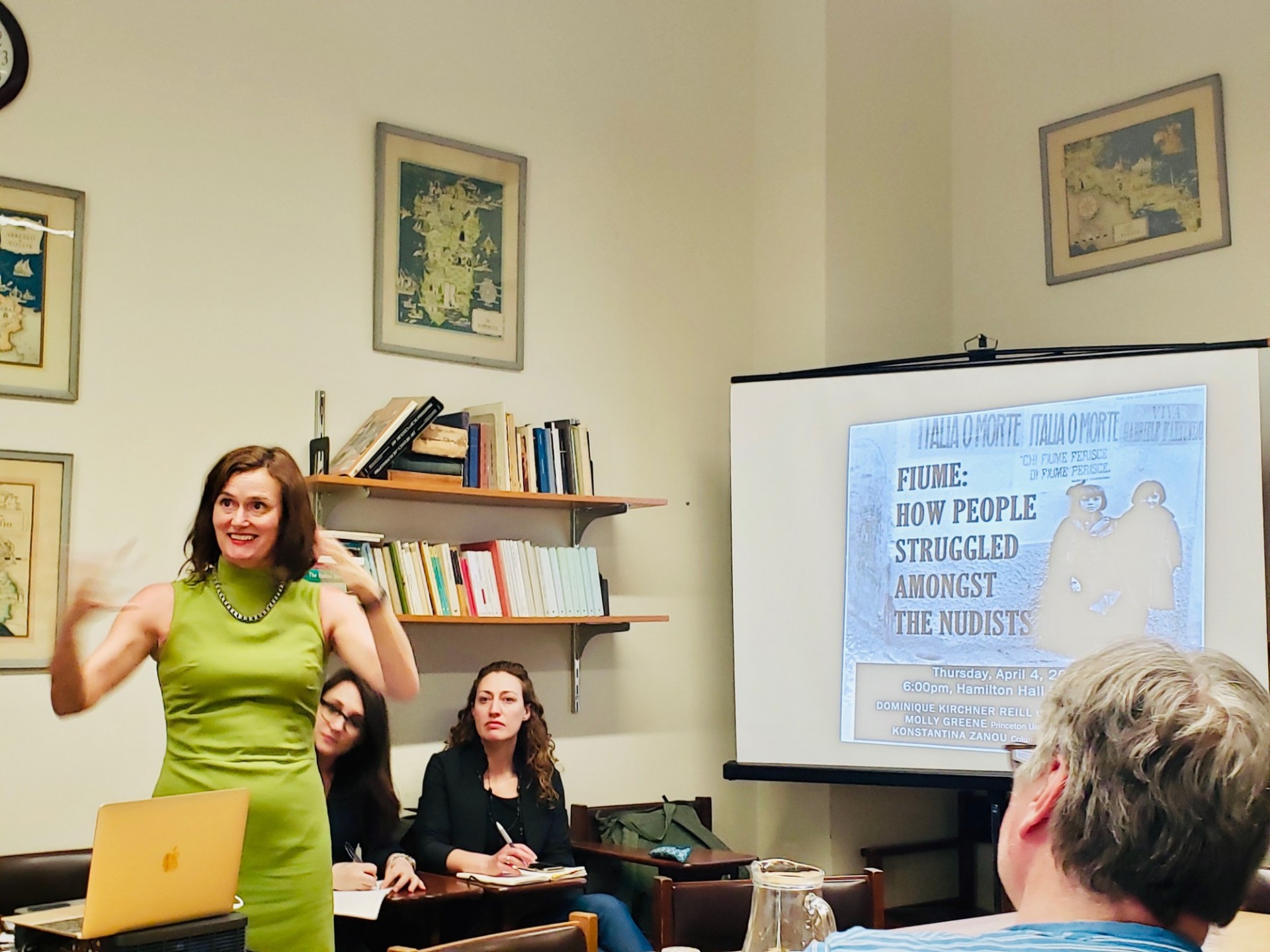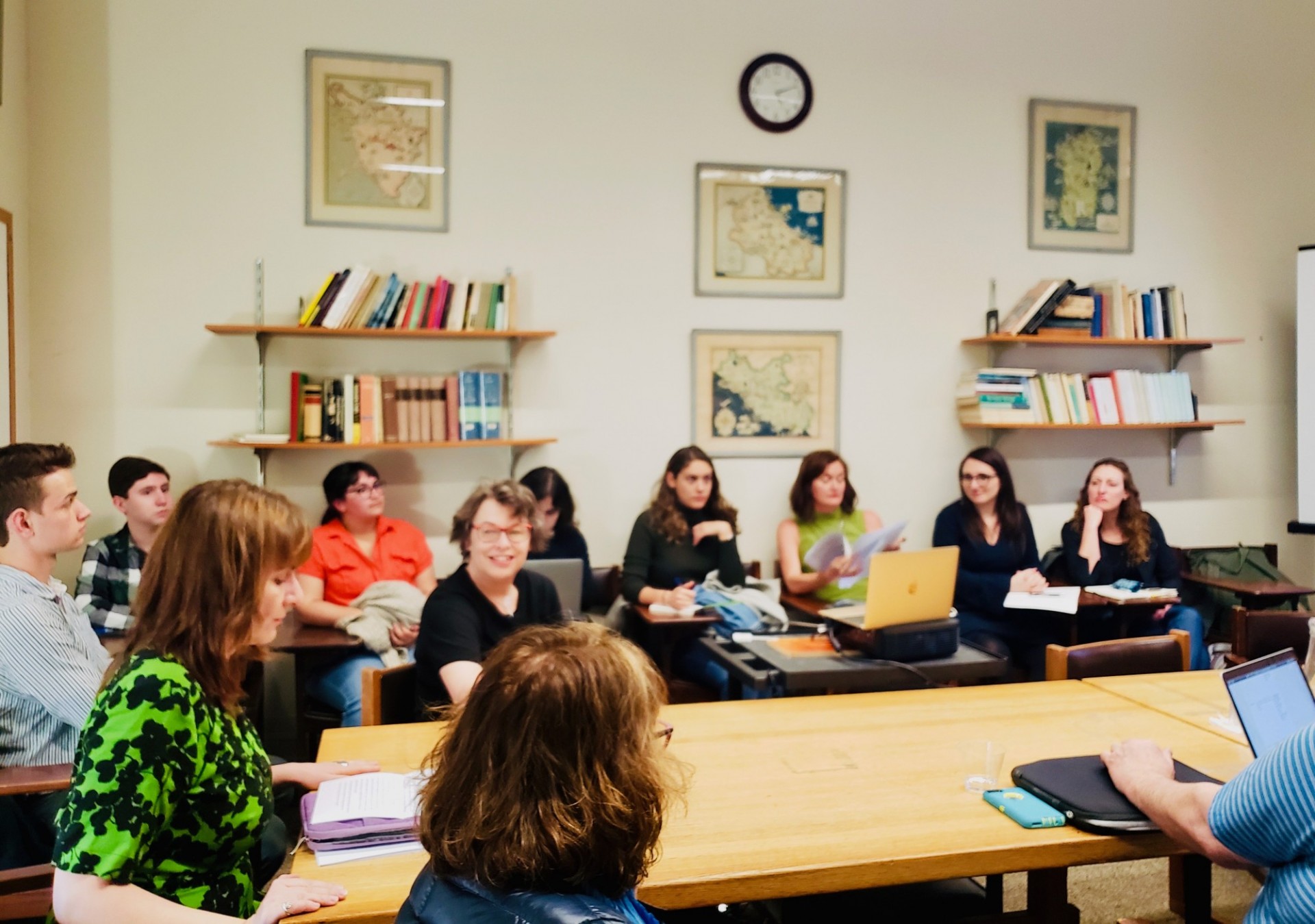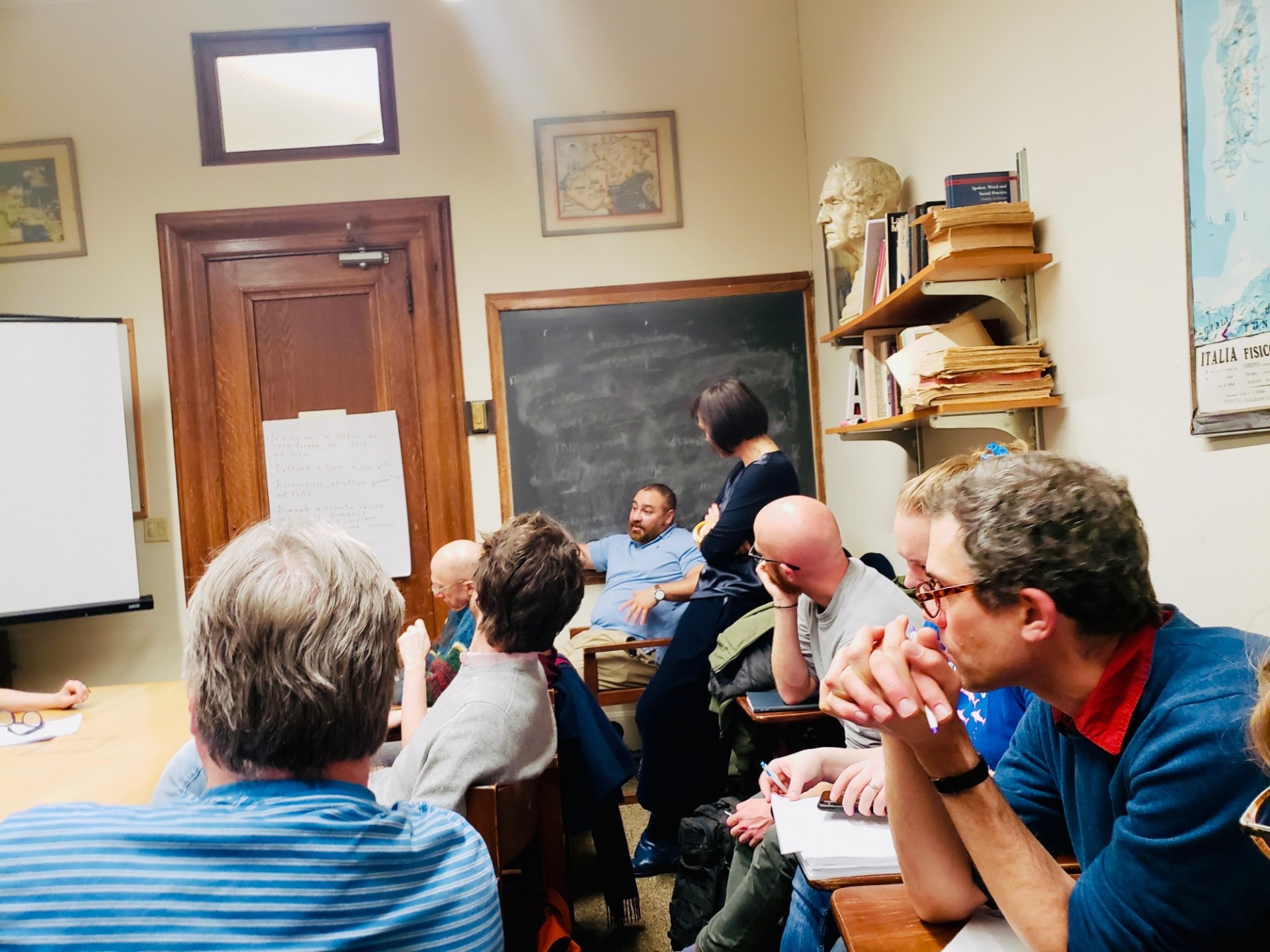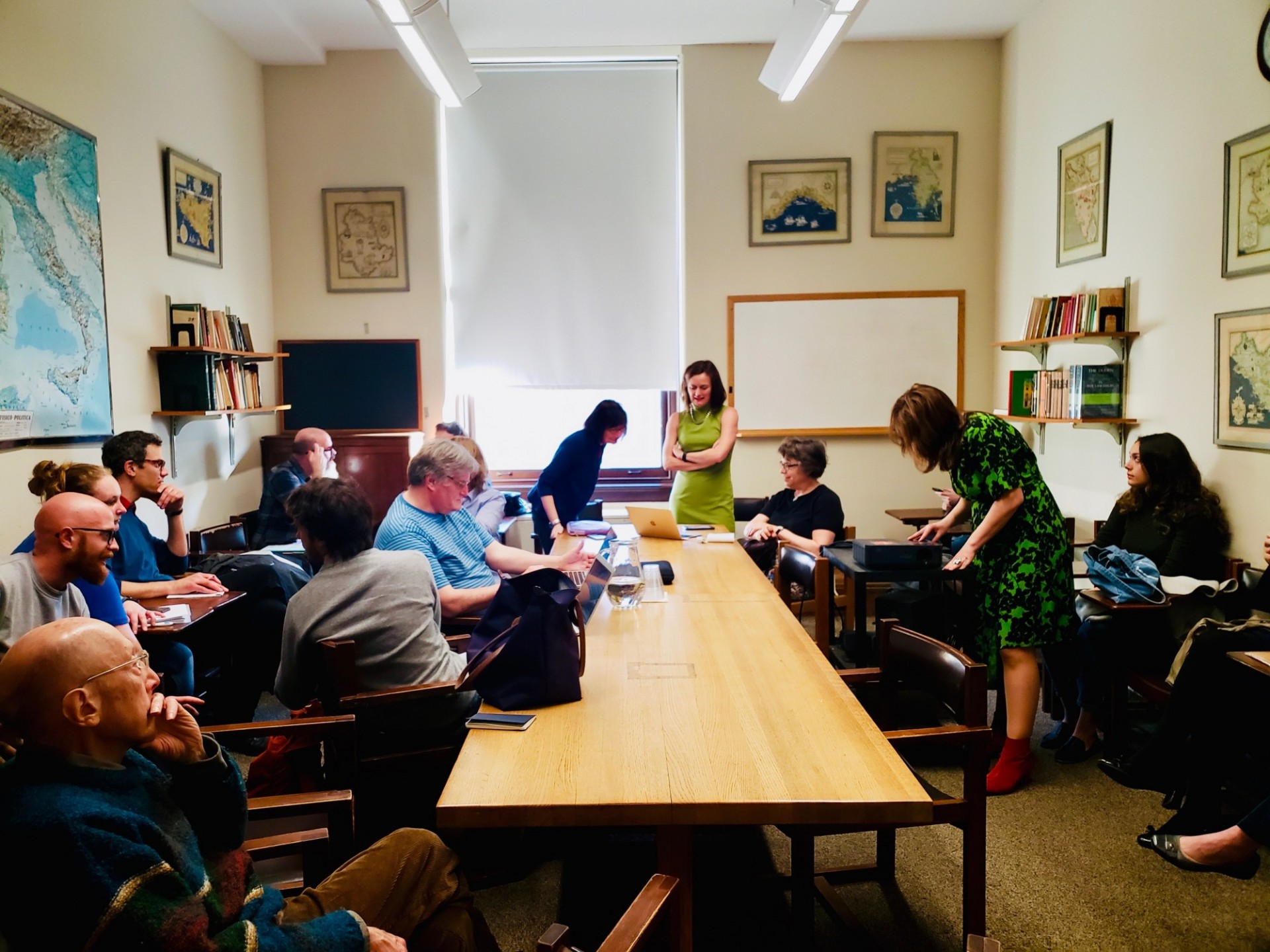Recap: "Fiume: How People Struggled Amongst the Nudists"

On Thursday April 4th, the Department of Italian and the European Institute hosted the latest session of the Italian and Mediterranean Colloquium. At this event, Dominique Kirchner Reill (University of Miami) delivered a lecture entitled, “Fiume: How People Struggled Amongst the Nudists.” After the lecture was a response by Molly Greene (Princeton University) and a discussion moderated by Konstantina Zanou (Columbia University). The event welcomed lively discussion and questions about the assumptions made by mainstream histories of nationalism in the interwar period.
Reill’s talk centered on Fiume (now Rijeka, Croatia) of the early 1900s. At the time, the small port city’s geopolitical future was not certain, due to shifting political borders that accompanied falling empires. In this era, the people of Fiume were accustomed to the rule of an empire or larger country over their city, as they had been under the “umbrella” of empire for so long. Also, Fiumians achieved a certain level of economic comfort when they had these overarching political structures that increased economic activity and connectivity. At the same time, Fiumians were passionate about their autonomy, and therefore took what they needed from Italy and Austro-Hungary in terms of laws, education, and currency without perfectly aligning their city with either of these entities’ governing structures. In her research, Riell highlights this aspect of Fiume’s incomplete compliance with bigger powers to illustrate a larger observation about history of Europe in the 1900s: people all over the continent were so used to operating under empires that their everyday lives were defined by how they fit into, or did not fit into, imperial structures. And when World War I ended, there was immense struggle to regain the comforts offered by empires of the past.
This idea of struggle to preserve life as usual in the era of dying empires was Reill’s main point in studying Fiume. She wanted to look deeper into the romanticized narrative of nation-states in early 1900s Europe to uncover the “unfun” occurrences affecting the everyday lives of citizens of nations and empires. Fiume is a particularly intriguing case because frequently-told histories of Gabriele d’Annunzio and his legionnaires create perceptions of the city as a zone of “pre-fascist partying” defined by “extremes of drugs, sex, nudism, and libertinism.” Fiume’s reality, according to Reill, was much more complex than d’Annunzio and his followers made it seem. One example Reill provided was the romanticized stories of sexual experiences of men in Fiume: they overshadow the tragic tales of the women involved, forced into prostitution by poor economic circumstances.
Fiume’s economic struggles were more than likely the result of its limbo between Italy and the previously prevalent Austro-Hungarian empire. For instance, the circulation of so many types of krone (Austro-Hungarian currency) caused the Fiume krone to suffer, leading to visible economic hardship in the city. Other factors were at play as well, such as the fact that Fiume for the most part wanted to become an autonomous part of Italy, but they were not welcomed into the country.
The most significant takeaway from Reill’s lecture was the importance of moving away from the nationalist and proto-fascist narratives about Fiume to start telling the stories of those who suffered in the city at a time when the future of would-be city-states was uncertain. Reill’s project is also an alternative history of what might have been; that is, what Fiume would have become, had the city achieved their geopolitical aspirations after the fall of surrounding empires.
Following Reill’s lecture was a short commentary by Molly Green and discussion questions from Konstantina Zanou. The discussion that ensued focused primarily on questions on the nature of autonomy and sovereignty in early 1900s Fiume, nationalism, the situation of the krone after World War I, and the structure and scope of Kirchner Reill’s forthcoming book.
The next and last session of the 2018-2019 Italian and Mediterranean Colloquium, “British Women in the Risorgimento: An Orientalist Civilizing Mission?” will take place April 25th at 6pm in 501 Hamilton Hall.


